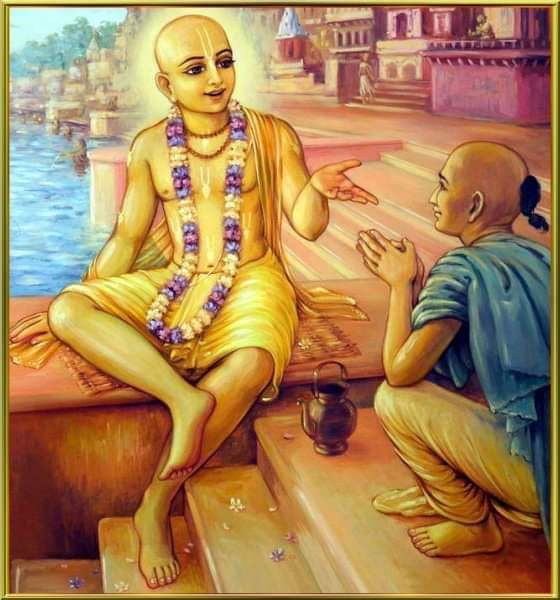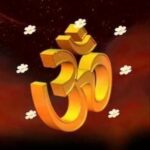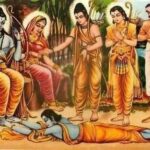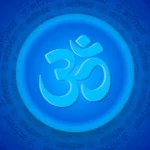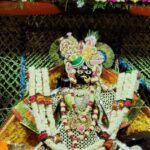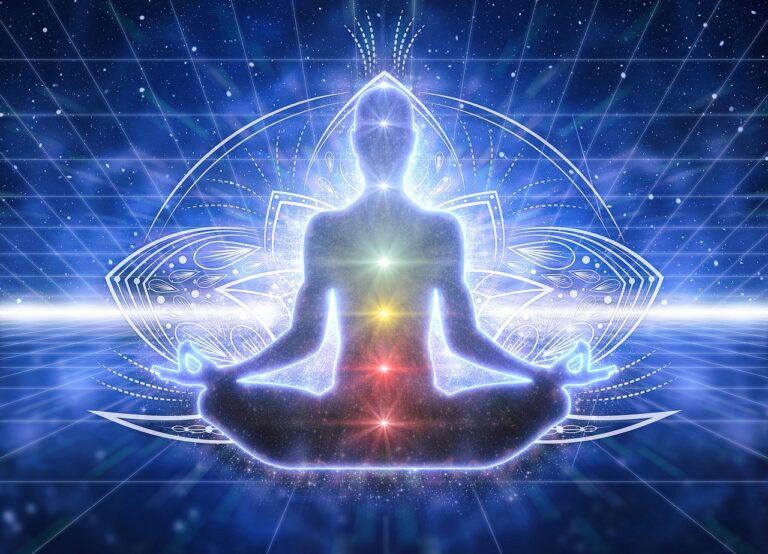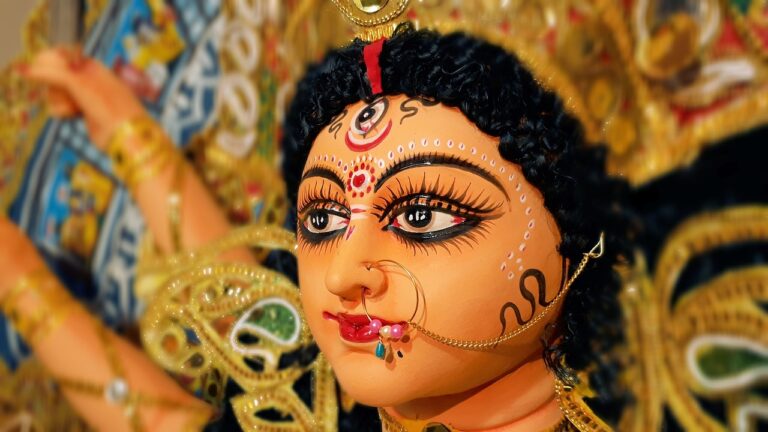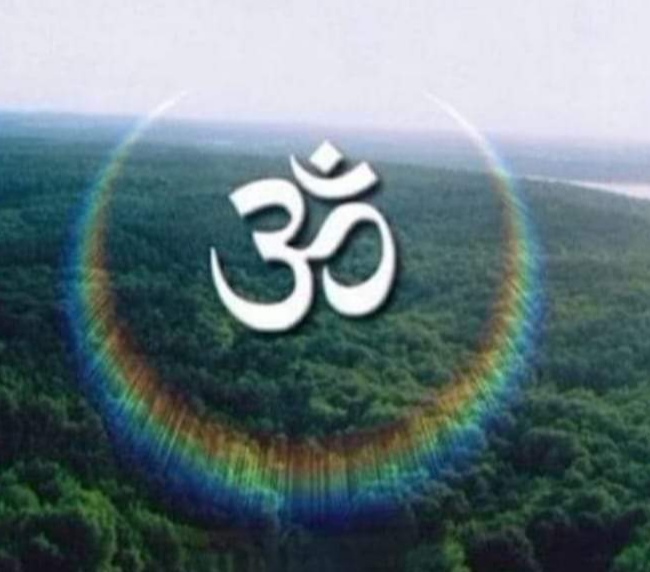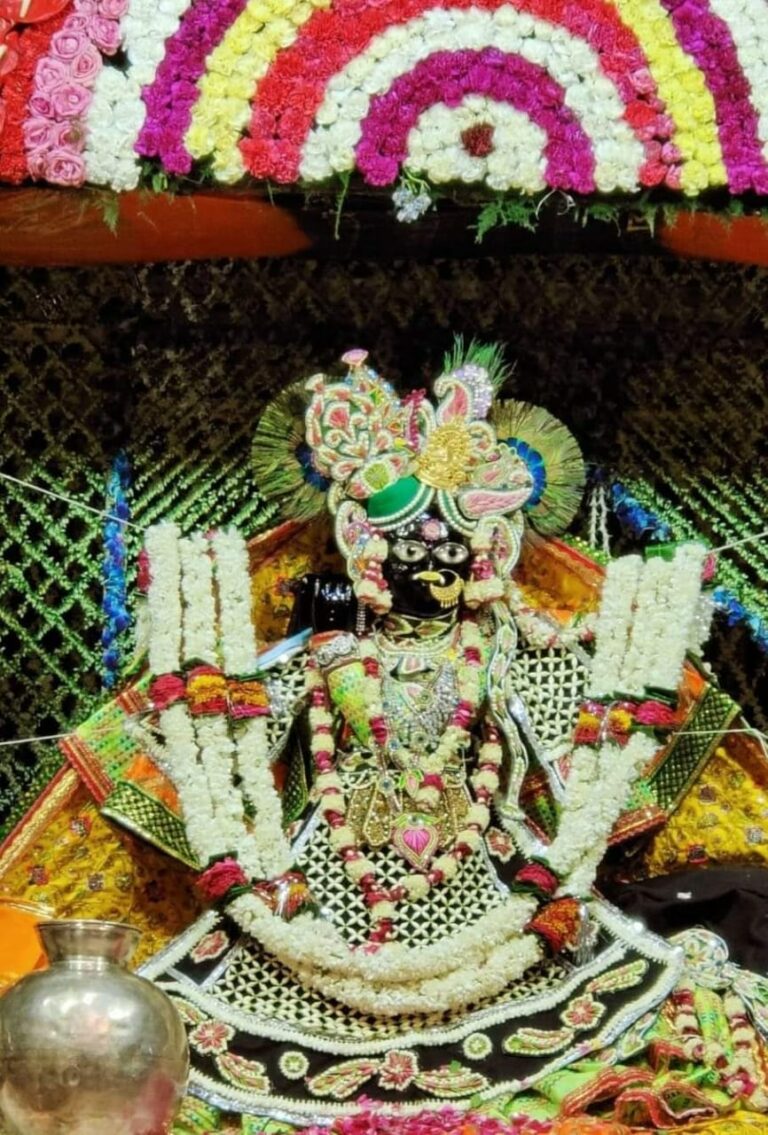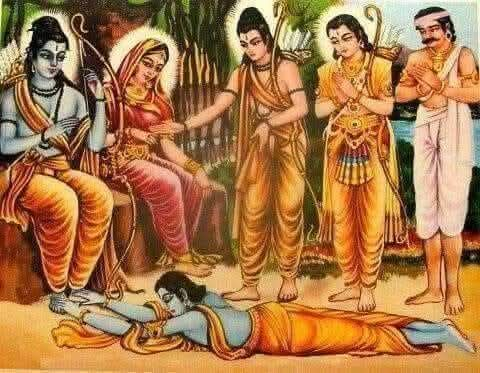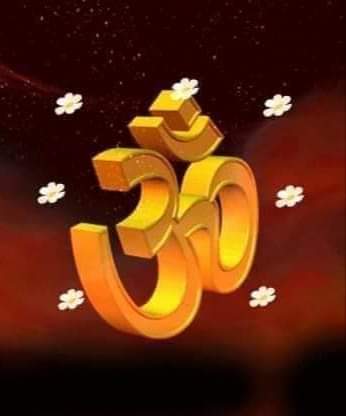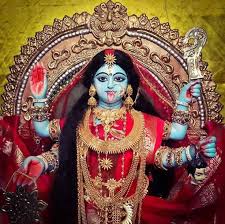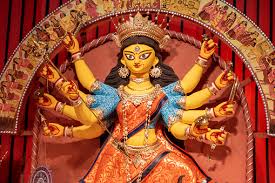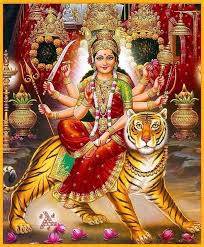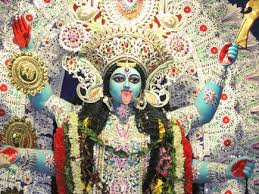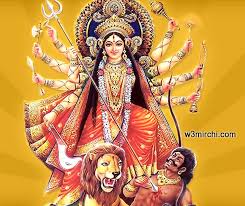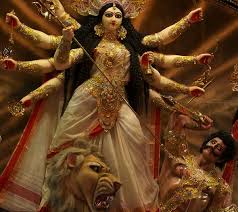।। श्रीहरि:।।
[भज] निताई-गौर राधेश्याम [जप] हरेकृष्ण हरेराम
प्रेम की अवस्थाओं का संक्षिप्त परिचय
कैतवरहितं प्रेम नहि भवति मानुषे लोके।
यदि भवति कस्य विरहो विरहे सत्यपि को जीवति।।
लोक मर्यादा को मेटकर मोहन से मन लगाने को मनीषियों ने प्रेम कहा है। प्रेम के लक्षण में इतना ही कहना यथेष्ट है कि–
प्रेमैव गोपरामाणां काम इत्यगमत् प्रथाम्।
अर्थात ‘गोपियों के शुद्ध प्रेम को ही ‘काम’ के नाम से पुकारने की परिपाटी पड़ गयी है।’ इससे यही तात्पर्य निकला कि प्रेम में इन्द्रियसुख की इच्छाओं को एकदम अभाव होता है। क्योंकि गोपिकाओं के काम में किसी प्रकार के अपने शरीर सुख की इच्छा नहीं थी। वे जो कुछ करती थीं केवल श्रीकृष्ण की प्रसन्नता के निमित्त। इसलिये शुद्ध प्रेम इन्द्रिय और उनके धर्मों से परे की वस्तु है। इसी को ‘राग’ के नाम से भी पुकारते हैं। इस ‘काम’, ‘प्रेम’ अथवा राग के तीन भेद हो सकते हैं– पूर्वराग, मिलन और विछोह या विरह। जिसके हृदय में प्रेम उत्पन्न हो जाता है उसे घर-द्वार, कुटुम्ब-परिवार, संसारी विषय-भोग कुछ भी नहीं सुहाते। सदा अपने प्यारे का ही चिन्तन बना रहता है। प्रेमी की दशा उस पुरुष की सी हो जाती है जिसे अपने प्राणों से अत्यन्त ही मोह हो और उसे फांसी के लिये कारावास के फाँसी घर में बन्द कर रखा हो; जिस प्रकार प्राणों के भय से उसकी क्रियाएँ और चेष्टाएँ होती हैं, उसी प्रकार चेष्टाएँ रागी की अथवा प्रेमी की भी होती हैं। रागमार्ग के उपासक वैष्णवों ने अपने ग्रन्थों में इन सब दशाओं का बड़े विस्तार के साथ वर्णन किया है।
इस संकुचित स्थल में न तो उनका उल्लेख ही हो सकता है और न यहाँ उनके उल्लेख का कुछ विशेष प्रयोजन ही दिखायी देता है। इस सम्बन्ध में अष्ट सात्त्विक विकारों का बहुत उल्लेख आता है और वे ही अत्यन्त प्रसिद्ध भी हैं, अत: यहाँ बहुत ही संक्षेप में पहले उन्हीं आठ विकारों का वर्णन करते हैं। वे आठ ये हैं– स्तम्भ, कम्प, स्वेद, वैवर्ण्य, अश्रु, स्वरभंग, पुलक और प्रलय। ये भय, शोक, विस्मय, क्रोध और हर्ष की अवस्था में उत्पन्न होती हैं। प्रेम के लिये ही इन भावों को ‘सात्त्विक विकार’ कहा गया है। अब इनकी संक्षिप्त व्याख्या सुनिये।
स्तम्भ– शरीर का स्तब्ध हो जाना। मन और इन्द्रियाँ जब चेष्टारहित होकर निश्चल हो जाती हैं, उस अवस्था को स्तम्भ कहते हैं।
कम्प– शरीर में कँपकँपी पैदा हो जाय उसे ‘वेपथु’ या ‘कम्प‘ कहते हैं। अर्जुन की युद्ध के अभाव में भये के कारण ऐसी दशा हुई थी। उन्होंने स्वयं कहा है– ‘वेपथुश्च शरीरे में रोमहर्षश्च जायते’। अर्थात ‘मुझे कँपकँपी छूट रही है, रोंगटे खडे हो गये हैं।’
स्वेद– शरीर में से पसीना छूटना या पसीने में ‘लथपथ’ हो जाना इसे ‘स्वेद’ कहते हैं।
अश्रु– बिना प्रयत्न किये शोक, विस्मय, क्रोध अथवा हर्ष के कारण आँखों में से जो जल निकलता है उसे अश्रु कहते हैं। हर्ष में जो अश्रु निकलते हैं वे ठण्डे होते हैं और वे प्राय: आँखों की कोर से नीचे को बहते हैं। शोक के अश्रु गरम होते हैं और वे बीच से ही बहते हैं।
स्वरभंग– मुख से अक्षर स्पष्ट उच्चारण न हो सके तो उसे ‘स्वरभेद’, ‘गद्गद’ या ‘स्वरभंग’ कहते हैं।
वैवर्ण्य– उपर्युक्त कारणों से मुख पर जो एक प्रकार की उदासी, पीलापन या फीकापन आ जाता है उसे ‘वैवर्ण्य’ कहते हैं। उसका असली स्वरूप है, आकृति का बदल जाना।
पुलक– शरीर के सम्पूर्ण रोम खड़े, हो जायँ उसे ‘पुलक’ या ‘रोमांच’ कहते हैं।
प्रलय– जहाँ शरीर का तथा भले-बुरु का ज्ञान ही न रह जाय उसे ‘प्रलय’ कहते हैं। इन्हीं सब कारणों से बेहोशी हो जाती है। इस अवस्था में प्राय: लोग पृथ्वी पर गिर पड़ते हैं। बेहोश होकर धड़ाम से पृथ्वी पर गिर पडने का नाम ‘प्रलय’ है। ये उपर्युक्त भाव हर्ष, विस्मय, क्रोध, शोक आदि सभी कारणों से होते हैं किन्तु प्रेम के पक्ष में ही ये प्रशंसनीय हैं। पीछे हम पूर्वराग मिलन और वियोग अथवा विछोह– ये तीन अवस्थाएँ प्रेम की बता चुके हैं। अब उनके सम्बन्ध में कुछ सुनिये।
पूर्वराग– प्यारे से साक्षात्कार तो हुआ नहीं है, किन्तु चित्त उसके लिये तड़प रहा है, इसे ही संक्षेप में पूर्वराग कह सकते हैं। दिन-रात उसी का ध्यान, उसी का चिन्तन और उसी के सम्बन्ध का ज्ञान बना रहे। मिलने की उत्तरोत्तर इच्छा बढ़ती ही जाय इसी का नाम पूर्वराग है। इस दशा में शरीर से, घर-द्वार तथा जीवन से भी एकदम वैराग्य हो जाता है। उदाहरण के लिये इसी श्लोक को लीजिये–
हे देव हे दयित हे भुवनैकबन्धो
हे कृष्ण हे चपल हे करुणैकसिन्धो।
हे नाथ हे रमण हे नयनाभिराम
हा ! हा ! कदा नु भवितासि पदं दृशोर्मे।।[1]
इस श्लोक में परम करुणापूर्ण सम्बोधनों द्वारा बड़ी ही मार्मिकता के साथ प्यारे से दर्शन देने की प्रार्थना की गयी है। सचमुच अनुराग इसी का नाम है। ऐसी लगन हो तब कहीं वह निगोड़ा इस ओर दृष्टिपात करता है। बड़ा निर्दयी है !
मिलन– यह विषय वर्णनातीत है। सम्मिलन में क्या सुख है, यह बात तो अनुभवगम्य है, इसे तो प्रेमी और प्रेम पात्र के सिवा दूसरा कोई जान ही नहीं सकता। इसीलिये कवियों ने इसका विशेष वर्णन नहीं किया है। सम्मिलन सुख को तो दो ही एक होकर जान सकते हैं। वे स्वयं उसका वर्णन करने में असमर्थ होते हैं, फिर कोई वर्णन करे भी तो कैसे करे? अनुभव होने पर वर्णन करने की शक्ति नहीं रहती और बिना अनुभव के वर्णन व्यर्थ है। इसलिये इस विषय में सभी कवि उदासीन से ही दीख पड़ते हैं। श्रीमद्भागवतादि में वर्णन है, किन्तु वह आटे में नमक के ही समान प्रसंगवश यत्किंचित है। सभी ने विरह के वर्णन में ही अपना पाण्डित्य प्रदर्शित किया है। और यदि कुछ वर्णन हो सकता है तो यत्किंचित विरह का ही हो सकता है। उसी के वर्णन में मजा है। सम्मिलन सुख को तो वे दोनों ही लूटते हैं। सुनिये, रसिक रसखान जी ने दूर खड़े होकर इस सम्मिलन का बहुत ही थोड़ा वर्णन किया है। किन्तु वर्णन करने में कमाल कर दिया है। दो प्रेमियों के सम्मिलन का इतना सजीव और जीता-जागता चित्र शायद ही किसी अन्य कवि की कविता में मिले। एक सखी दूसरी सखी से श्रीराधिका जी और श्रीकृष्ण के सम्मिलन का वर्णन कर रही है। सखी कहती है–
ऐ री आज काल्हि सब लोकलाज त्यागि दोऊ,
सीखे हैं सबै बिधि सनेह सरसायबो।
यह रसखन दिन द्वैमें बात फैलि जैहैं
कहाँ लौं सयानी ! चंद हाथन छिपायबो।।
आज हौं निहारयो बीर, निकट कालिंदी तीर
दोउन को दोउनसौं मुख मुसकायबो।
दोउ परैं पैयाँ दोउ लेत हैं बलैयाँ उन्हें,
भूल गईं गैयां, इन्हें गागर उठायबो।।
कैसा सजीव वर्णन है ! वह भी कालिन्दी-कूल पर एकान्त में हुआ था, इसलिये छिपकर सखी ने देख भी लिया, कहीं अन्त:पुर में होता तो फिर वहाँ उसकी पहुँच कहां–
‘दोउ परैं पैयाँ दोउ ले हैं बलैयां उन्हें,
भूल गईं गैयां, इन्हें गागर उठायबो।।’
-कहकर तो सखी ने कमाल कर दिया है। धन्य है ऐसे सम्मिलन को !
विरह- इन तीनों में उत्तरोत्तर एक-दूसरी से श्रेष्ठ है। पूर्वानुरागी की अपेक्षा मिलन श्रेष्ठ है और मिलन की अपेक्षा विरह श्रेष्ठ है, प्रेमरूपी दूध का विरह ही मक्खन है। इसीलिये कबीरदास जी ने कहा है–
बिरहा बिरहा मत कहौ, बिरहा है सुलतान।
जेहि घट बिरह न संचरै, सो घट जान मसान।।
अब विरह के तीन भेद हैं– भविष्य विरह, वर्तमान विरह और भूत विरह। इनमें भी परस्पर उत्तरोत्तर उत्कृष्टता है। भावी विरह बड़ा ही करुणोत्पादक है, उससे भी दु:खदायी वर्तमान विरह। भूत विरह तो दु:ख-सुख की पराकाष्ठा से परे ही है।
पहले भावी विरह को ही लीजिये। ‘प्यारा कल चला जायगा,’ बस, इस भाव के उदय होते ही जो कलेजे में एक प्रकार की ऐंठन सी होने लगती है, उसी ऐंठन का नाम ‘भावी विरह’ है। इसका उदय नायिका के ही हृदय में उत्पन्न होता हो, से बात नहीं है। अपने प्यारे के विछोह में सभी हृदय में यह विरह-वेदना उत्पन्न हो सकती है। जिस कन्या को आज पन्द्रह-बीस वर्षों से पुत्री की तरह लाड-प्यार किया था, वही शकुन्तला आश्रम त्यागकर अपने पति के घर जायगी, इस बात के स्मरण से ही शकुन्तला के धर्मपिता भगवान कण्व ऋषि का कलेजा कांपने लगा ! हाय ! अब शकुन्तला फिर देखने को न मिलेगी? इस विचार से वे शोकयुक्त हुए बैठे हैं। वे कैसे भी सहृदय क्यों न थे, किन्तु थे तो ज्ञानोपासक। चिन्ता में एकदम रागमार्गीय गोपिकाओं की भाँति अपने को भूल नहीं गये। ये उस अन्त:करण की स्वाभाविक प्रवृत्ति पर विचार करते-करते कहने लगे। ऋषि के इन वाक्यों में कितनी करुणा है, कैसी वेदना है, पुत्री-विरह का यह संस्कृत-भाषा में सर्वोत्कृष्ट श्लोक कहा जा सकता है। ऋषि सोच रहे है–
यास्यत्यद्य शकुन्तलेति हृदयं संस्पृष्टमुत्कण्ठया
कण्ठ: स्तम्भितवाष्पवृत्तिकलुषश्चिन्ताजडं दर्शनम्।
वैक्लव्यं मम तावदीदृशमपि स्नेहादरण्यौकस:
पीड्यन्ते गृहिण: कथं न तनयाविश्लेषदु:खैर्नवै:।।
‘शकुन्तला आज चली जायगी, इस विचार के आते ही मेरे हृदय में एक प्रकार की कँपकँपी सी हो रही है, एक प्रकार की विचित्र उत्कण्ठा सी प्रतीत होती है। गला अपने आप रुद्ध सा हो रहा है, अश्रु स्वत: ही निकल पडते हैं, एक प्रकार की जडता का अनुभव कर रहा हूँ। जाने क्यों दिल में घबडाहट सी हो रही है। जब वनवासी वीतराग मुझ मुनि की ही ऐसी दशा है, तो गृहस्थाश्रम के मोह में फँसे हुए गृहस्थियों की तो पुत्री-वियोग के समय न जाने क्या दशा होती होगी?’
इन वाक्यों में भगवान कण्व की छिपी हुई भावी वेदना है। वे अपने भारी ज्ञान के प्रभाव से उसे छिपाना चाहते हैं, किन्तु श्रीकृष्ण के मथुरा गमन का समाचार सुनकर गोपिकाओं को जो भावी विरह-वेदना हुई वह तो कुद बात ही दूसरी है। वैसे तो सभी का विरह उत्कृष्ट है, किन्तु राधिका जी के विरह को ही सर्वोत्कृष्ट माना गया है।
एक सखी इस हृदय को हिला देने वाले समाचार को लेकर श्रीमती जी के समीप जाती है। उसे सुनते ही राधिका जी कर्तव्यविमूढिनी-सी होकर प्रलाप करने लगती हैं। उनके प्रलाप को मिथिला के अमर कवि श्री विद्यापति ठाकुर के शब्दों में सुनिये। अहा ! कितना बढ़िया वर्णन है। राधिका जी कह रही हैं–
कि करिब, कोथा याब, सोयाय ना हय।
ना याय कठिन प्राण किबा लागि रय।।
पियार लागिया हाम कोन देशे याब।
रजनी प्रभात हैले कार मुख चाब।।
बन्धु याबे दूर देशे मरिब आमि शोके।
सागरे त्यजिब प्राण नाहि देखे लोके।।
नहेत पियार गलार माला ये करिया।
देशे देशे भरमिब योगिनी हइया।।
विद्यापति कबि इह दु:ख गान।
राजा शिवसिंह लछिमा परमान।।
‘मैं क्या करूँ? कहाँ जाऊँ? कुछ अच्छा नहीं लगता। अरे ! ये निष्ठुर प्राण भी तो नहीं निकलते। प्रियतम के लिये मैं किस देश में जाऊँ, रजनी बीतने पर प्रात:काल किसके कमलमुख की आरे निहारूँगी? प्यारे तो दूर देश में जा रहे हैं, मैं उनके विरह-शोक में मर जाऊँगी। समुद्र में कूदकर प्राण गँवा दूँगी जिससे लोगों की दृष्टि से ओझल रह सकूँ। नहीं तो प्यारे को गले की माला बनाकर देश-विदेशों में योगिनी बनकर घूमती रहूँगी। कवि विद्यापति इस दु:खपूर्ण गान को गाता है, इसमें लछिमा औरा राजा शिवसिंह प्रमाण हैं।’ यह भावी विरह का उदाहरण है। अब वर्तमान विरह की बात सुनिये– जो अब तक अपने साथ रहा, जिसके साथ रहकर भाँति-भाँति के सुख भोगे, विविध प्रकार के आनन्द का अनुभव किया, वही जाने के लिये एकदम तैयार खड़ा है। उस समय जो दिल में एक प्रकार की धड़कन होती है, सीने में कोई मानो साथ ही सैकड़ौं सुइयाँ चुभो रहा हो, उसी प्रकार की सी कुछ-कुछ दशा होती है उसे ही ‘वर्तमान विरह’ कहते है।
शकुन्तला अपने धर्म पिता भगवान कण्व के पैर छूकर और पियम्बदा आदि सखियों से मिल-जुलकर पास की कुटियों में से धीरे-धीरे निकलकर भगवान कण्व की हवन वेदी वाले चबूतरे के नीचे एक पेड़ के सहारे से खड़ी हो गयी है। सभी शिष्य वर्ग शोक से सिर नीचा किये इधर-उधर खड़े हैं। शकुन्तला की सखियां सुबकियां भर रही हैं। साथ जाने वाले शिष्य वल्कल वस्त्रों की पुटलियों को बगल में दाबे एक ओर खड़े हैं।
भगवान कण्व का कलेजा फटा सा जा रहा है, मानो उसे बलात कोई खींच रहा हो। इतने बडे कुलपति होकर अपनी विरह-वेदना को किस पर प्रकट करें। जो सुनेगा वहीं हँसेगा कि इतने बडे ज्ञानी महर्षि ये कैसी भूली-भूली मोह की सी बातें कर रहे हैं। इस भय से वे और किसी से न कहकर वृक्षों से कह रहे हैं–
पातुं न प्रथमं व्यवस्यति जलं युस्मास्वपीतेषु या
नादत्ते प्रियमण्डनापि भवतां स्नेहेन या पल्लवम्।
आदौ व: कुसुमप्रसूतिसमये यस्या भवत्युत्सव:
सेयं याति शकुन्तला पतिगृहं सर्वैरनुज्ञायताम्।।
‘वृक्षो ! यह शकुन्तला अपने पति के घर जा रही है। देखो, तुम्हारे प्रति तो इसका अत्यन्त ही स्नेह था। जब तक यह तुम्हें पानी नहीं पिला लेती थी तब तक स्वयं भी पानी नहीं पीती थी। इसे गहने पहनने का यद्यपि बड़ा भारी शौक था, फिर भी यह तुम्हारे स्नेह के कारण तुम्हारे पत्तों को नहीं तोड़ती थी। वसन्त में जब तुम पर नये-ही-नये फूल आते थे तब यह उस खुशी में बड़ा भारी उत्सव मनाती थी। हाय ! वही तुम सब लोगों की रक्षा करने वाली शकुन्तला अब जा रही है, तुम सब मिलकर इसे आज्ञा दो।’
महर्षि के एक-एक शब्द में करुणा फूट-फूटकर निकल रही है। मूक वृक्षों के प्रति अपनी वेदना प्रकट करके ऋषि ने उसे और भी अधिक हृदयग्राही बना दिया है। किन्तु इसमें भाव को छिपाने की चेष्टा की गयी है, लोक लाज की परवा की है। ‘प्रेम में नेम कहाँ? वहाँ तो सब कुछ छोड़ना होता है। इस प्रकार की गम्भीरता और वाकचातुरी राजमार्ग में दूषण ही समझा जाता है, इन भावों के प्रेम की न्यूनता ही समझी जाती है। इसीलिये तो कवियों ने नायिकाओं के ही द्वारा ये भाव प्रकट कराये हैं।
सचमुच ये भाव सरस नारी हृदय में ही पूर्णरीत्या प्रकट हो सकते हैं। गोपिकाओं के बिना इस विरह-वेदना का अधिकारी दूसरा हो ही कौन सकता है? रथ पर बैठकर मथुरा जाने वाले श्रीकृष्ण के विरह में व्रजांगनाओं की क्या दशा हुई, इसे भगवान व्यासदेव की ही अर वाणी में सुनिये। उनके बिना इस अनुभवगम्य विषय का वर्णन कर ही कौन सकता है?
एवं बुवाणा विरहातुरा भृशं
व्रजस्त्रिय: कृष्णविषक्तमानसा:।
विसृज्य लज्जां रुरुदु: स्म सुस्वरे
गोविन्द दामोदर माधवेति।।
श्रीशुकदेव जी राजा परीक्षित से कह रहे हैं– ‘राजन ! जिनके चित्त श्रीकृष्ण में अत्यन्त ही आसक्त हो रहे हैं, जो भविष्य में हाने वाले विरह-दु:ख को स्मरण करके घबड़ायी हुई नाना भाँति के आर्तवचनों को कहती हुई और लोक लाज आदि बात की भी परवा न करती हुई वे व्रज की स्त्रियां ऊँचे स्वर से चिल्ला-चिल्लाकर हा गोविन्द ! हा माधव ! ! हा दामोदर ! ! ! कह-कहकर रुदन करने लगीं।’ यही वर्तमान विरह का सर्वोत्तम उदाहरण है।
प्यारे चले गये, अब उनसे फिर भेंट होगी या नहीं इसी द्विविध का नाम ‘भूत विरह’ है। इसमें आशा-निराशा दोनों का सम्मिश्रण है। यदि मिलन की एकदम आशा ही न रहे तो फिर जीवन का काम ही क्या? फिर तो क्षणभर में इस शरीर को भस्म कर दें। प्यारे के मिलन की आशा तो अवश्य है, किन्तु पता नहीं वह आशा कब पूरी होगी। पूरी होगी भी या नहीं, इसका भी कोई निश्चय नहीं। बस, प्यारे एक ही बार, दूर से ही थोडी ही देर के लिये क्यों न हो, दर्शन हो जायँ। बस, इसी एक लालसा से वियोगिनी अपने शरीर को धारण किये रहती है। उस समय उसकी दशा विचित्र होती है। सारधारणतया उस विरह की दश दशाएं बतायी गयी हैं। वे ये हैं–
चिन्तात्र जागरोद्वेगो तानवं मलिनांगता।
प्रलापो व्याधिरुन्मादो मोहो मृत्युर्दशा दश।।[1]
‘चिन्ता, जागरण, उद्वेग, कृशता, मलिनता, प्रलाप, उन्माद, व्याधि, मोह और मृत्यु- ये ही विरह की दश दशाएँ हैं।’ अब इनका संक्षिप्त विवरण सुनिये–
चिन्ता– अपने प्यारे के ही विषय में सोते-जागते, उठते-बैठते हर समय सोचते रहने का नाम चिन्ता है। मन में दूसरे विचारों के लिये स्थान ही न रहे। व्रजभाषा गगन के परम प्रकाशमान ‘सूर’ ने चिन्ता का कैसा सजीव वर्णन किया है–
नाहिन रह्यो मन में ठौर।
नंद-नंदन अछत कैसे आनिये उर और।
चलत चितवत दिवस जागत, सुपन सोवत रात।
हृदयतें वह स्याम मूरति छिन न इत उत जात।।
स्याम गात सरोज आनन ललित-गति मृदु-हास।
‘सूर’ ऐसे रूप कारन मरत लोचन-प्यास।।
प्यासे फिर नींद कहां? नींद तो आँखों में ही आती है आँखें ही रूप की प्यासी हैं, ऐसी अवस्था में नींद वहाँ आ ही नहीं सकती। इसलिये विरह की दूसरी दशा ‘जागरण’ है।
जागरण– न सोने का ही नाम ‘जागरण’ है। यदि विरहिणी को क्षणभर के लिये निद्रा आ जाय तो वह स्वप्न में तो प्रियतम के दर्शन-सुख का आनन्द उठा ले। किन्तु उसकी आँखों में नींद कहाँ? राधिका जी अपनी एक प्रिय सखी से कह रही हैं–
या: पश्यन्ति प्रियं स्वप्ने धन्यास्ता: सखि योषित:।
अस्माकं तु गते कृष्णे गता निद्रापि वैरिणी।।[1]
‘प्यारी सखी ! वे स्त्रियां धन्य हैं जो प्रियतम के दर्शन स्वप्न में तो कर लेती हैं। मुझ दु:खिनी के भाग्य में तो यह सुख भी नहीं बदा है। मेरी तो वैरिणी निद्रा भी श्रीकृष्ण के साथ-ही-साथ मथुरा को चली गयी। वह मेरे पास आती ही नहीं’। धन्य है, निद्रा आवे कहाँ? आँखों में तो प्यारे रूप ने अड्डा जमा लिया है। एक म्यान में दो तलवार समा ही कैसे सकती हैं? उद्वेग-हृदय में जो एक प्रकार की हलचलजन्य बेकली-सी होती है उसी का नाम उद्वेग है। भारतेन्दु हरश्चिन्द्र ने उद्वेग का कितना सुन्दर वर्णन किया है–
व्याकुलही तडपौं बिनु प्रीतम,
कोऊ तौ नेकु या उर लाओ,
प्यासी तजौं तुन रूप-सुधा बिनु,
पानिय पीको पपीहै पिआओ।।
जीयमें हौस कहूँ रहि जाय न,
हा ! ‘हरिचंद’ कोऊ उठि धाओ।।
आवै न आवै पियारो अरे !
कोउ हाल तौ जाइकै मेरो सुनाओ।।
पागलपन की हद हो गयी न ! भला कोई जाकर हाल ही सुना देता तो इससे क्या हो जाता? अब चौथी दशा कृशता का समाचार सुनिये।
कृशता– प्यारे की याद में बिना खाये-पीये दिन-रात्रि चिन्ता करने के कारण जो शरीर दुबला हो जाता है उसे ‘कृशता’ या ‘तानव’ कहते हैं। इसका उदारण लीजिये। गोपियों की दशा देखकर ऊधोजी मथुरा लौटकर आ गये हैं और बड़े ही करुणस्वर से राधिका जी की दशा का वर्णन कर रहे हैं। अन्धे सूर ने इस वर्णन में कमाल कर दिया है, सुनिये–
चित दै सुनौ स्याम प्रबीन।
हरि ! तुम्हारे बिरह राधा, मैं जु देखी छीन।।
तज्यो तेल तमोल भूषन, अंग बसन मलीन।
कंकना कर बाम राख्यो, गाढ़ भुज गहि लीन।।
जब सँदेसो कहन सुन्दरि, गमन मोतनकीन।
सखि मुद्रावलि चरन अरुझी, गिरि धरनिबलहीन।।
कंठ बचन न बोल आवै, हृदय आंसुनि भीन।
नैन जल भरि रोइ दीनों, ग्रसित आपद दीन।।
उठी बहुरि सँभारि भट ज्यों, परम साहस कीन।
‘सूर’ प्रभु कल्यान ऐसे, जियहि आसा लीन।।
यदि इसी एक अद्वितीय पद को विरह की सभी दशाओं के लिये उद्धृत कर दें तो सम्पूर्ण विरह-वेदना के चित्र को खींचने में पर्याप्त होगा। विरहिणी राधा की ‘कृशता’, ‘मलिनता’, ‘चिन्ता’, ‘उद्वेग’, ‘व्याधि’, ‘मोह’ और मृत्यु तक की दसों दशाओं का वर्णन इसी एक पद में कर दिया है। मृत्यु को शास्त्रकारों ने साक्षात मृत्यु न बताकर ‘मृत्युतुल्य अवस्था’ ही बताया है। राधिका जी की इससे बढ़कर और मृत्युतुल्य अवस्था हो ही क्या सकती है?
मलिनांगता– शरीर की सुधि न होने से शरीर पर मैल जमा जाता है, बाल चिकट जाते हैं, वस्त्र गंदे हो जाते हैं इसे ही ‘मलिनता’ या मालिनांगता कहते हैं। ऊपर पद में राधिका जी के लिये आया ही है–
तज्यो तेल तमोल भूषन अंग बसन मलीन।
प्रलाप– शोक के आवेश में अपने-पराये को भूलकर जो पागलों की तहर भूली-भूली बातें करने लगते हैं उनका नाम प्रलाप है। सीता जी की खोज में लक्ष्मण जी के साथ रामचन्द्र जी वनों में फिर रहे हैं। हृदय में भारी विरह है, अपने-पराये का ज्ञान नहीं, शरीर का होश नहीं, वे चौंककर खड़े हो जाते हैं और प्रलाप करने लगते हैं–
कोऽहं ब्रूहि सखे स्वयं स भगवानार्य: स को राघव:
के यूयं बत नाथ नाथ किमिदं दासोऽस्मि ते लक्ष्मण:।
कान्तारे किमिहास्महे बत सखे देव्या गतिर्मृग्यते
का देवी जनकारिधराजतनया हा जानकि क्वासि हा।।
भगवान लक्ष्मण जी से चौंककर पूछते हैं– ‘भैया ! मैं कौन हूँ, मुझे बताओ तो सही।’
लक्ष्मण कहते हैं– ‘प्रभो ! आप साक्षात भगवान हैं।’ फिर पूछते हैं– ‘कौन भगवान?
लक्ष्मण कहते हैं– ‘रघु महाराज के वंश में उत्पन्न होने वाले श्री राम।’ फिर चारों ओर देखकर पूछते हैं- ‘अच्छा तुम कौन हो?’ यह सुनकर अत्यन्त ही अधीर होकर लक्ष्मण जी दीनता के साथ कहते हैं– ‘हे स्वामिन ! हे दयालो ! यह आप कैसी बातें कर रहे हैं। मैं आपका चरण सेवक लक्ष्मण हूँ’।
भगवान फिर उसी प्रकार कहते हैं– ‘तब फिर हम यहाँ जंगलों में क्यों घूम रहे हैं?’ शान्ति के साथ धीरे से लक्ष्मण जी कहते हैं– ‘हम देवी की खोज कर रहे हैं।’
चौंककर भगवान पूछते हैं– ‘कौन देवी?’ लक्ष्मण जी कहते हैं– ‘जगद्वन्दिनी, जनकनन्दिनी, श्री सीता जी।’
बस, सीता जी का नाम सुनते ही ‘हा सीते ! हा जानकी ! तू कहाँ चली गयी’ कहते-कहते भगवान मूर्च्छित हो जाते हैं। इन बेसिर-पैर की बातों का ही नाम ‘प्रलाप’ है –
व्याधि– शरीर में किसी कारण से जो वेदना होती है उसे ‘व्याधि’ कहते हैं और मन की वेदना को ‘आधि’ कहते हैं। विरह की ‘व्याधि’ भी एक दशा है। उदाहरण लीजिये। श्रीराधा जी अपनी प्रिय सखी ललिता से कह रही हैं –
उत्तापी पुटपाकतोऽपि गरलग्रामादपि क्षोभणो।
दम्भोलेरपि दु:सह: कटुरलं हृन्मग्नशल्यादपि।।
तीव्र: प्रौढविसूचिकानिचयतोऽप्युच्चैर्ममायं बली।
मर्माण्यद्य भिनत्ति गोकुलपतेर्विश्लेषजन्मा ज्वर:।।[1]
हे सखि ! गोकुलपति उस गोपाल का विच्छेद ज्वर मुझे बड़ा ही पीडा दे रहा है। यह पात्र में तपाये सुवर्ण से भी अधिक उत्तापदायी है। पृथ्वी पर जितने जहर है उन सबसे अधिक क्षोभ पहुँचाने वाला है, वज्र से भी दु:सह, हृदय में छिदे हुए शल्य से भी अधिक कष्टदायी है तथा तीव्र विसूचिकादि रोगों से भी बढ़कर यन्त्रनाएँ पहुँचा रहा है। प्यारी सखी ! यह ज्वर मेरे मर्मस्थानों को भेदन कर रहा है।’ इसी का नाम ‘विरहव्याधि’ है।
उन्माद– साधारण चेष्टाएं जब बदल जाती हैं और विरह के आवेश में जब विरहिणी अटपटी और विचित्र चेष्टाएँ करने लगती हैं तो उसे ही ‘विरहोन्माद’ कहते हैं। उदाहरण लीजिये। उद्धव जी मथुरा पहुँचकर श्री राधिका जी की चेष्टाओं का वर्णन कर रहे हैं–
भ्रमति भवनगर्भं निर्निमित्तं हसन्ती
प्रथयति तव वार्ता चेतनाचेतनेषु।
लुठति च भुवि राधा कम्पितांगी मुरारे
विषमविषयखेदोद्गारविभ्रान्तचित्ता।।
अर्थात हे कृष्ण ! राधिका जी की दशा क्या पूछते हो, उसकी तो दशा ही विचित्र है। घर के भीतर घूमती रहती है, बिना बात ही खिल-खिलाकर हँसने लगती है। चेतनावस्था में हो या अचेतनावस्था में, तुम्हारे ही सम्बन्ध के उद्गार निकालती है। कभी धूलि में ही लोट जाती है, कभी थर-थर कांपने ही लगती है, हे मुरारे! मैं क्या बताऊँ, वह विधुवदनी राधा तुम्हारे विषम विरह खेद से विभ्रान्त सी हुई विचित्र ही चेष्टाएँ करती है।’
नीचे के पद में भारतेन्दु बाबू ने भी उन्मादिनी का बड़ा ही सुन्दर चित्र खींचा है, किन्तु इसे ‘विरहोन्माद’ न कहकर ‘प्रेमोन्माद’ कहना ही ठीक होगा। सुनिये, साँवरे के सनेह में सनी हुई एक सखी की कैसी विचित्र दशा हो गयी है, पद्य पढ़ते-पढ़ते भाव सजीव होकर आँखों के सामने नृत्य करने लगता है–
भूली-सी, भ्रकी-सी, चौंकी, जकी-सी, थकी-सी गोपी,
दुखी-सी, रहति कछु नाहीं सुधि देह की।
मोही-सी, लुभाई-सी, कछु मोदक-सो खायो सदा
बिसरी-सी रहै नेकु खबर न गेह की।।
रिसभरी रहै, कबौं फूली न समाति अंग,
हँसि-हँसि कहै बात अधिक उमेह की।
पूछेते खिसानी होय, उत्तर न आवै ताहि,
जानी हम जानी है निसानी य सनेह की।।
मोह– अत्यन्त ही वियोग में अंगों के शिथिल हो जाने से जो एक प्रकार की मूर्छा-सी हो जाती है उसे मोह कहते हैं। यह मृत्यु के समीप की दशा है। इसका चित्र तो हमारे रसिक हरिचन्द जी ही बडी खूबी से खींच सकते हैं। लीजिये मोह में मग्न हुई एक विरहिन के साक्षात दर्शन कीजिये–
थाकी गति अंगन की, मति परि गई मंद,
सूख झांझरी-सी ह्वै कैं देह लागी पियरान।
बावरी-सी बुद्धि भई, हँसी काहू छीन लई,
सुख के समाज, जित तित लागे दूर जान।।
‘हरीचंद’ रावरे विरह जग दुखमयो,
भयो कछु और होनहार लागे दिखरान।
नैन कुम्हिलान लागे, बैनहु अथान लागे,
आयो प्राननाथ ! अब प्रान लागे मुरझान।।
सचमुच यदि प्राणनाथ के पधारने की आशा न होती, ये कुम्हिलाये हुए नैन और अथाये हुए बैन कब के पथरा गये होते। मुरझाये हुए प्राण प्राणनाथ की आशा से ही अटके हुए हैं। मोह की दशा का इससे उत्तम उदाहरण और कहाँ मिलेगा?
मृत्यु– मृत्यु की अब हम व्याख्या करें। मृत्यु हो गयी तो झगड़ा मिटा, दिन-रात के दु:ख से बचे, किन्तु ये मधुर रस के उपासक रागानुयायी भक्त कवि इतने से ही विरहिणी का पिण्ड नहीं छोड़ेंगे। मृत्यु का वे अर्थ करते हैं ‘मृत्यु के समान अवस्था हो जाना’ इसका दृष्टान्त लीजिये। बँगला भाषा के प्रसिद्ध पदकर्ता श्री गोविन्द दास जी की अमर वाणी में ही व्रजवासियों की इस दसवीं दशा का दर्शन कीजिये–
माधव ! तुहु यव निरदय भेल
मिछई अवधि दिन, गणि कत राखब, ब्रजवधू-जीवन-शेल।।1।।
कोई धरनितल, कोई यमुनाजल, कोइ कोइ लुठइ निकुंज।।2।।
एतदिन विरहे, मरणपथ पेखलु तोहे तिरिवध पुनपुंज।।3।।
तपत सरोवर, थोरि सलिलि जनु आकुल सफरी परान।।4।।
जीवन मरन, मरण वर जीवन ‘गोविन्ददास’ दुख जान।।5।।
दूती कह रही है– ‘प्यारे माधव ! भला यह भी कोई अच्छी बात है, तुम इतने निर्दय बन गये? दुनिया भर के झूठे? कल की कह आये थे, अब कल-ही-कल कितने दिन हो गये। इस प्रकार झूठमूठ दिन गिनते-गिनते कब तक उन सबको बहलाते रहेंगे। अब तुम्हें व्रज की दयनीय दशा क्या सुनाऊँ। वहाँ का दृश्य बड़ा करुणोत्पादक है। कोई गोपी तो पृथ्वी पर लोट-पोट हो रही है, कोई यमुना जी में कूद रही है, कोई-कोई निभृत निकुंजों में ही लंबी-लंबी सांसें ले रही हैं। इस प्रकार वे अत्यन्त ही कष्ट के साथ रात्रि-दिन को बिता रही हैं, तुम्हारे विरह में अब वे मृत्यु के समीप ही पहुँच चुकी हैं। यदि वे सब मर गयीं तो सैकड़ों स्त्रियों के वध का पाप तुम्हारे ही सिर लगेगा। उनकी दशा ठीक उन मछलियों की सी है जो थोड़े जल वाले गड्ढे में पड़ी हों और सूर्य उस गड्ढे के सब जल को सोख चुका हो, वे जिस प्रकार थोड़ी-सी कीच में सूर्य की तीक्ष्ण किरणों से तड़फती रहती हैं उसी प्रकार वे तुम्हारे विरह में तड़फ रही हैं। यह जीते हुए ही मरण है, यही नहीं किन्तु इस जीवन से तो मरण ही लाख दर्जे अच्छा। गोविन्द दास कहते हैं, उनके दु:ख को ऐसा ही समझो !’ नियमानुसार तो यहाँ विरह का अन्त हो जाना चाहिये था, किन्तु वैष्णव कवि मृत्यु के बाद भी फिर उसे होश में लाते हैं और फिर मृत्यु से आगे भी बढ़ते हैं। रागमार्गीय ग्रन्थों में इससे आगे के भावों का वर्णन है।
अनुराग को शुक्ल पक्ष के चन्द्रमा के समान[1]प्रवर्द्धनशील कहा गया है। अनुराग हृदय में बढ़ते-बढ़ते जब सीमा के समीप तक पहुँच जाता है तो उसे ही ‘भाव’ कहते हैं। वैष्णव गण इसी अवस्था को ‘प्रेम का श्री गणेश’ कहते हैं। जब भाव परम सीमा तक पहुँचता है तो उसका नाम ‘महाभाव’ होता है। महाभाव के भी ‘रूढ़ महाभाव’ और ‘अधिरूढ़ महाभाव’ दो भेद बताये गये हैं। अधिरूढ़ महाभाव के भी ‘मोदन’ और ‘मादन’ दो रूप कहे हैं। ‘मादन’ ही ‘मोहन’ के भाव में परिणत हो जाता है, तब फिर ‘दिव्योन्माद’ होता है। ‘दिव्योन्माद’ ही ‘प्रेम’ या रति की पराकाष्ठा या सबसे अन्तिम स्थिति है। इसके उद्घूर्णा चित्रजल्पादि बहुत से भेद हैं। यह दिव्योन्माद श्री राधिका जी के ही शरीर में प्रकट हुआ था। दिव्योन्मादावस्था में कैसी दशा होती है, इस बात का अनुमान श्रीमद्भागवत के उक्त श्लोक से कुछ-कुछ लगाया जा सकता है–
एंवव्रत: स्वप्रियनामकीर्त्या
जातानुरागो द्रुतचित्त उच्चै:।
हसत्यथो रोदिति रौति गाय
त्युन्मादवन्नृत्यति लोकबाह्य:।।[2]
इस श्लोक में ‘रौति’ और ‘रोदिति’ ये दो क्रियाएं साथ दी हैं। इससे खूब जोरों से ठाह मारकर रोना ही अभिव्यंजित होता है। ‘रु’ धातु शब्द करने के अर्थ में व्यवहृत होती है। जोरों से रोने के अनन्तर जो एक करुणाजनक ‘हा’ शब्द अपने-आप ही निकल पड़ता है वही यहाँ ‘रौति’ क्रिया का अर्थ होगा। इसमें उन्माद की अवस्था का वर्णन नहीं है। यह तो ‘उन्माद की-सी अवस्था’ का वर्णन है। उन्मादावस्था तो इससे भी विचित्र होगी। यह तो सांसारिक उन्माद की बात हुई, अब दिव्योन्माद तो फिर उन्माद से भी बढ़कर विचित्र होगा ! वह अनुभवगम्य विषय है। श्रीराधिका जी को छोडकर और किसी के शरीर में यह प्रकट रूप से देखा अथवा सुना नहीं गया। भावों की चार दशा बतायी हैं– (1) भावोदय, (2) भावसन्धि, (3) भावशावल्य और (4) भावशान्ति।
किसी कारण विशेष से जो हृदय में भाव उत्पन्न होता है उसे भावोदय कहते हैं। जैसे सायंकाल होती ही श्रीकृष्ण के आने का भाव हृदय में उदित हो गया। हृदय में दो भाव जब आकर मिल जाते हैं तो उस अवस्था का नाम भाव सन्धि है जैसे बीमार होकर पति के घर लौटने पर पत्नी के हृदय में हर्ष और विषादजन्य दोनों भावों की सन्धि हो जाती है। बहुत-से भाव जब एक साथ उदय हो जायँ तब उसे भावशाल्य कहते हैं। जैसे पुत्रोत्पत्ति के समाचार के साथ ही पत्नी की भयंकर दशा का तथा पुत्र को प्राप्त होने वाली उसके पुत्रहीन मातामह की सम्पत्ति तथा उसके प्रबन्ध करने के भाव एक साथ ही हृदय में उत्पन्न हो जायँ। इसी प्रकार जब इष्ट वस्तु के प्राप्त हो जाने पर जो एक प्रकार की सन्तुष्टि हो जाती है उसे ‘भावशान्ति’ कहते हैं। जैसे रास में अन्तर्धान हुए श्रीकृष्ण सखियों को सहसा मिल गये, उस समय उनका अदर्शन रूप जो विरहभाव था वह शान्त हो गया।
इसी प्रकार निर्वेद, विषाद, दैन्य, ग्लानि, तम, मद, गर्व, शंका, त्रास, आवेग, उन्माद, अपस्मार, व्याधि, मोह, मृति, आलस्य, जाड्य, व्रीडा, अवहित्था, स्मृति, वितर्क, चिन्ता, मति, धृति, हर्ष, औत्सुक्य, अमर्ष, असूया, चापल्य, निद्रा, और बोध इन सबको व्यभिचारीभाव कहते हैं। इनका वैष्णव-शास्त्रों में विशदरूप से वर्णन किया गया है।
इन सब बातों का असली तात्पर्य यही है कि हृदय में किसी की लगन लग जाय। दिल में कोई धँस जाय, किसी की रूपमाधुरी आँखों में समा जाय, किसी के लिये उत्कट अनुराग हो जाय तब सभी बेड़ा पार हो जाय।
एक बार उस प्यारे से लगन लगनी चाहिये फिर भाव, महाभाव, अधिरूढ़भाव तथा सात्त्विक विकार और विरह की दशाएं तो अपने-आप उदित होंगी। पानी की इच्छा होनी चाहिये। ज्यों–ज्यों पानी के बिना गला सूखने लगेगा त्यों-त्यों तडफडाहट अपने-आप ही बढ़ने लगेगी। उस तड़फडाहट को लाने के लिये प्रयत्न न करना होगा। किन्तु हृदय किसी को स्थान दे तब न, उसने तो काम-क्रोधाधि चोरों को स्थान दे रखा है। वहाँ फिर महाराज प्रेमदेव कैसे पधार सकते हैं। सचमुच हमारा हृदय तो वज्र का है। स्तम्भ, रोमांच, अश्रु आदि आठ विकारों में से एक भी तो हमारे शरीर में स्वेच्छा से उदित नहीं होता। भगवान वेदव्यास तो कहते हैं–
तदश्मसारं हृदयं बतेदं
यद्गृह्यमाणैर्हरिनामधेयै:।
न विक्रियेताथ यदा विकारो
नेत्रे जलं गात्ररुहेषु हर्ष:।।
अर्थात उस पुरुष के हृदय को व्रज की तरह-फौलाद की तरह-समझना चाहिये जिसके नेत्रों में हरिनाम स्मरण मात्र से ही जल न भर आता हो, शरीर में रोमांच न हो जाते हों और हृदय में किसी प्रकार विकार न होता हो।’ सचमुच हमारा तो हृदय ऐसा ही है। कैसे करें, क्या करने से नेत्रों में जल और हृदय में प्रेम की विकृति उत्पन्न हो। चैतन्य महाप्रभु भी रोते-रोते यही कहा करते थे–
नयनं गलदश्रुधारया
वदनं गद्गदरुद्धया गिरा।
पुलकैर्निचितं वपु: कदा
तव नामग्रहणे भविष्यति।।
अर्थात ‘हे नाथ ! तुम्हारा नाम ग्रहण करते-करते कब हमारे नेत्रों से जल की धारा बहने लगेगी। कब हम गद्गद कण्ठ से ‘कृष्ण-कृष्ण’ कहते हुए पुलकित हो उठेंगे?’ वे महाभाग तो अपनी साध को पूरी कर गये।
अठारह वर्ष नेत्रों से इतनी जलधारा बहायी कि कोई मनुष्य इतने रक्त का जल कभी बना ही नहीं सकता। गौरभक्तों का कहना है कि महाप्रभु गरुडस्तम्भ के समीप जगमोहन के इसी ओर जहाँ खड़े होकर दर्शन करते थे, वहाँ नीचे एक छोटा-सा कुण्ड था। महाप्रभु दर्शन करते-करते इतना रोते थे कि उस गड्ढे में अश्रुजल भर जाता था। एक-दो दिन नहीं, साल-दो-साल नहीं, पूरे अठारह साल इसी प्रकार वे रोये। उन्मादावस्था में भी उनका श्री जगन्नाथ जी के दर्शन को जाना बंद नहीं हुआ। यह काम उनका अन्त तक अक्षुण्णभाव से चलता रहा। वैष्णव भक्तों का कथन है कि महाप्रभु के शरीर में प्रेम के ये सभी भाव प्रकट हुए। क्यों न हों, वे तो चैतन्यस्वरूप ही थे। महाप्रभु के उन दिव्यभावों का वृत्तान्त पाठक अगले प्रकरणों में पढ़ेंगे। अन्त में श्रीललित किशोरी जी की अभिलाषा में अपनी अभिलाषा मिलाते हुए हम इस वक्तव्य को समाप्त करते हैं–
जमुना पुलिन कुंज गहवरकी
कोकिल ह्वै द्रुम कूक मचाऊँ।
पद-पंकज प्रिय लाल मधुप ह्वै
मधुरे-मधुरे गुंज सुनाऊँ।।
कूकर ह्वै बन बीथिन डोलौं
बचे सीथ रसिकनके खाऊँ।
‘ललितकिसोरी’ आस यही मम
ब्रज-रज तजि छिन अनत न जाऊँ।।
क्रमशः अगला पोस्ट [164]
••••••••••••••••••••••••••••••••••
[ गीताप्रेस,गोरखपुर द्वारा प्रकाशित श्री प्रभुदत्त ब्रह्मचारी कृत पुस्तक श्रीचैतन्य-चरितावली से ]
, Shri Hari:. [Bhaj] Nitai-Gaur Radheshyam [Chant] Harekrishna Hareram a brief introduction to the stages of love
Without Kaitavara there is no love in the human world. If there is separation from anyone who lives even in separation
The sages have called love to fall in love with Mohan by breaking the public decorum. In the sign of love, it is enough to say that-
It became customary that love was the desire of the cowherds
That is, it has become a practice to call the pure love of the gopis by the name of ‘Kaam’. This means that there is a complete absence of desires for sensual pleasures in love. Because in the work of the Gopikas, there was no desire for any kind of pleasure for their own body. Whatever she used to do was only for the pleasure of Shri Krishna. Therefore pure love is something beyond the senses and their dharmas. This is also called by the name of ‘raag’. There can be three differences of this ‘work’, ‘love’ or raga – pre-raag, union and separation or separation. The one in whose heart love arises, he does not like home, family, worldly subjects and enjoyment. He always thinks only of his beloved. The lover’s condition becomes like that of a man who is very attached to his life and has kept him locked in the gallows of prison for hanging; Just as his actions and efforts are due to the fear of life, so are the efforts of a lover or lover. Vaishnavas who are followers of Ragmarga have described all these conditions in great detail in their scriptures.
Neither they can be mentioned in this narrow space, nor is there any special purpose for their mention here. There is a lot of mention of the eight sattvik disorders in this regard and they are also very famous, so here we describe those eight disorders very briefly. Those eight are Stambh, Kamp, Swed, Vaivernya, Ashra, Swarbhang, Pulak and Pralaya. They arise in states of fear, grief, astonishment, anger and joy. For the sake of love, these feelings have been called ‘Satvik Vikar’. Now listen to their brief explanation. Stambha – Numbness of the body. When the mind and senses become motionless without any effort, that state is called Stambha. Trembling- When trembling is born in the body, it is called ‘vepathu’ or ‘trembling’. Arjuna’s fear in the absence of war had led to such a situation. He himself has said – ‘Vepthushch sharire mein romharshch jayate’. Means ‘I’m shivering, I’m getting goosebumps.’
Sweda- The release of sweat from the body or getting ‘soaked’ in sweat is called ‘Sweda’. Tears – The water that comes out of the eyes due to grief, astonishment, anger or joy without any effort is called tear. The tears that come out in joy are cold and they usually flow down from the corner of the eyes. The tears of sorrow are hot and they flow from the middle. Swarbhang- If the letter cannot be pronounced clearly from the mouth, then it is called ‘Swarbhed’, ‘Gadgad’ or ‘Swarbhang’. Vaivernya- Due to the above reasons, a kind of sadness, pallor or discolouration comes on the face, it is called ‘Vaivarnya’. Its real form is the change of shape. Pulak – When all the hairs of the body stand erect, it is called ‘pulak’ or ‘thrill’. Pralaya – Where there is no knowledge of the body and good or bad, it is called ‘pralaya’. Due to all these reasons fainting occurs. In this state, people often fall on the earth. Falling unconscious on the earth is called ‘pralaya’. These above feelings are due to all the reasons of joy, amazement, anger, grief etc. but they are praiseworthy only in favor of love. Earlier, we have told about the three stages of love – union and separation or separation. Now listen something about him. Pre-attachment- The interview with the beloved has not happened, but the mind is yearning for him, this can be called pre-attachment in a nutshell. Day and night his attention, his thinking and the knowledge of his relationship should remain. The desire to meet keeps on increasing, this is called Purva Raag. In this condition, there is total disinterest in the body, in the house and in life. Take this verse for example-
O God, O beloved, O bond of the world O Krishna, O agile, O sea of compassion. O Lord, O Raman, O beautiful of the eyes damn ! damn ! When will you become a foothold in my sight?
In this verse, a prayer has been made to give darshan with great poignancy through very compassionate addresses. Truly Anurag is his name. If there is such passion, then somewhere that Nigoda looks towards it. Very cruel!
Meeting – This topic is beyond description. What is the happiness in meeting, this thing is experiential, no one can know it except the lover and the person of love. That is why the poets have not given any special description of it. Only two can know the happiness of union. They themselves are unable to describe it, then how can someone describe it? There is no power to describe when there is experience and description without experience is useless. That’s why all the poets seem indifferent in this matter. There is a description in Shrimad Bhagwatadi, but it is just like salt in flour. Everyone has displayed their erudition in the description of separation. And if there can be some description, it can be of separation only. There is fun in describing that. Both of them rob you of the happiness of meeting. Listen, Rasik Raskhan ji has given very little description of this meeting while standing at a distance. But you have done a wonderful job in describing it. Such a lively and vivid picture of the meeting of two lovers is rarely found in the poetry of any other poet. One female friend is telling the meeting of Shriradhika ji and Shri Krishna to another female friend. Friend says-
Hey, today I will give up all the localities, I have learned all the methods with affection Sarsaibo. The word spread in two days Where to get wise! Hide your hands. Today we are watching Bir, near Kalindi Teer Smile on two hundred faces. They take two feet The cows have forgotten, pick them up.
What a vivid description! That too happened in solitude at Kalindi-kul, so Sakhi also secretly observed, if it was somewhere in the inner world, then where would he reach there?
‘Dou parain paiyaan dou le hai balaiyaan unhe, You have forgotten the cows, pick them up.
By saying this, the friend has done wonders. Thank you for such a meeting!
Separation- Out of these three, one is progressively superior to the other. Meeting is better than love and separation is better than meeting, separation is the butter of the milk of love. That’s why Kabirdas ji has said-
Don’t say Birha Birha, Birha is Sultan. Wherever there is no separation, there is less life.
Now there are three types of separation – future separation, present separation and past separation. There is mutual excellence in these too. Future separation is very pitiable, present separation is more painful than that. Ghost separation is beyond the height of sorrow and happiness.
First take the future separation. As soon as this feeling of ‘beloved will go away tomorrow’, a kind of spasm starts happening in the heart, the name of that spasm is ‘future separation’. It doesn’t matter if its rise originates in the heart of the heroine itself. This pain of separation can arise in all hearts in the separation of their beloved. Shakuntala’s godfather Kanva Rishi’s heart began to tremble at the thought that the girl who had been pampered like a daughter for 15-20 years would leave the hermitage and go to her husband’s house! Oh ! Now Shakuntala will not be seen again? They are saddened by this thought. No matter how kind he was, but he was a worshiper of knowledge. In worry, like the Gopikas who are on the path of passion, they did not forget themselves. He started saying while considering the natural tendency of that conscience. There is so much compassion and pain in these sentences of the sage, this can be called the best verse in Sanskrit language on the separation of a daughter. Rishi is thinking-
My heart touched with anxiety that if she went to Shakuntala Throat: stagnant steam, dirty with anxiety, dull vision. Vaiklavya is my so much affectionate forest dweller: Why are housewives not tormented by the new sorrows of the separation of their daughters
‘Shakuntala will leave today, as soon as this thought comes, there is a kind of trembling in my heart, there seems to be a kind of strange yearning. Throat is getting choked automatically, tears come out automatically, I am feeling a kind of inertia. Don’t know why there is panic in the heart. When this is the condition of the forest dweller Vitarag Muni, then don’t know what would be the condition of the householders who are trapped in the fascination of home life, at the time of separation from their daughter.’
Lord Kanva’s future pain is hidden in these sentences. They want to hide it under the influence of their enormous knowledge, but the pain of future separation that the Gopikas felt after hearing the news of Shri Krishna’s visit to Mathura is a different matter. Although everyone’s separation is excellent, but Radhika ji’s separation is considered to be the best.
A friend approaches Mrs. Ji with this heart-wrenching news. On listening to him, Radhika ji starts raving like a dutiful vimudhini. Hear his ravings in the words of the immortal poet of Mithila, Shri Vidyapati Thakur. Aha! What a wonderful description. Radhika ji is saying-
Ki karib, kotha yab, soya na hai. Na yai difficult life kiba lagi rai. Pyar lagiya ham ko deshe yab. Rajni Prabhat Haile Car Mukh Chab. Bandhu yabe door desh marib aami shoke. Sagare tyjib pran nahi dekhte loke. Nahet pyar galar mala ye kariya. Desh desh bharmib yogini haiya. Vidyapati kabi eh dukh gan. King Shiv Singh Lachhima Parman.
‘What should I do? Where do I go? Something doesn’t feel right. Hey ! Even this cruel life does not come out. To which country should I go for my beloved, whose lotus face will I look at in the morning when Rajni passes away? Beloved are going to a far away country, I will die in mourning for them. I will lose my life by jumping into the sea so that I can disappear from the eyes of people. Otherwise, I will keep roaming in the country and abroad as a yogini by making my beloved a garland. Poet Vidyapati sings this sad song, in which Lachhima and Raja Shivsingh are proof.’ This is an example of future separation. Now listen to the present separation – the one who stayed with me till now, with whom I enjoyed various kinds of happiness, experienced different types of joy, he is ready to leave. At that time, there is a kind of palpitation in the heart, as if someone is piercing hundreds of needles in the chest at the same time, a condition similar to that is called ‘current separation’.
Shakuntala touching the feet of her religious father Lord Kanva and meeting Piyambada etc. friends slowly came out of the nearby huts and stood with the support of a tree under the platform of Lord Kanva’s Havan altar. All the disciples are standing here and there with their heads down in grief. Shakuntala’s friends are crying foul. The disciples accompanying Valkal are standing on one side pressing the pupils of the clothes by their side.
Lord Kanva’s heart is bursting as if someone is forcibly pulling him. Being such a great Vice-Chancellor, on whom should he express his separation pain. The one who listens will laugh that such a very knowledgeable Maharishi is talking about what kind of forgotten delusion. Due to this fear, without telling anyone else, they are saying to the trees-
She who is not the first to pour water on you Even the beloved Mandana who loves you does not give her leaves In the beginning you: at the time of flowering, whose festival is: This bird is going to her husband’s house Let everyone give her permission
Trees! This Shakuntala is going to her husband’s house. See, he was very affectionate towards you. Until she did not give you water, she herself did not drink water. Although it was very fond of wearing ornaments, yet it did not break your leaves because of your affection. In spring, when new flowers used to come on you, then it used to celebrate a big festival in that happiness. Oh ! The same Shakuntala, who protected all of you, is now going, all of you together command her.
Compassion is bursting out in each and every word of Maharishi. By expressing his anguish for the silent trees, the sage has made him all the more endearing. But an attempt has been made to hide the feeling in this, the public is concerned about shame. Where is the name in love? There you have to leave everything. This type of seriousness and eloquence is considered as corruption in the highway, the love of these expressions is understood to be inferior. That’s why the poets have expressed these feelings through heroines only.
Really, these feelings can be fully manifested only in the heart of a woman. Apart from the Gopikas, who else can be in charge of this pain of separation? What was the condition of the Vrajanganas in the separation of Shri Krishna who was going to Mathura sitting on the chariot, listen to it in the voice of Lord Vyasdev. Who can describe this experiential subject without them?
Thus thinking, she was very much distressed by separation The women of Vraja were poisoned by Krishna Leaving behind our shame we cried in a loud voice Govinda Damodar Madhaveti.
Shree Shukdev ji is saying to King Parikshit – ‘Rajan! Whose mind is deeply engrossed in Shri Krishna, remembering the sorrows and sorrows that will happen in the future, reciting various words in panic and not caring about public shame etc., those women of Vraj By shouting Ha Govind! Ha Madhav! , Hey Damodar! , , She started crying saying this.’ This is the best example of present separation.
Dear ones have gone, now whether we will meet them again or not, the name of this dilemma is ‘ghost separation’. There is a mixture of both hope and despair. If there is no hope of meeting at all, then what is the purpose of life? Then at least burn this body in a moment. There is definitely hope of meeting the beloved, but it is not known when that hope will be fulfilled. There is no certainty whether it will be fulfilled or not. Just once, my dear, why not be there for a while from a distance, let us have darshan. Just because of this one longing, separation keeps holding on to her body. At that time his condition is strange. In essence, the ten conditions of that separation have been described. They are
There is anxiety, awakening, anxiety, and dirty body. Delusion, disease, madness, delusion, death, ten states.
‘Worry, awakening, excitement, poverty, filthiness, delirium, frenzy, disease, attachment and death – these are the ten conditions of separation.’ Now listen to their brief description- Worry- The name of thinking about your beloved all the time while sleeping-waking up, getting up-sitting is the name of worry. There should be no place in the mind for other thoughts. What a living description of anxiety has been given by the supreme light of Vrajbhasha sky.
No one remained in the mind. Nand-Nandan untouchable how come ur more. Chalat chivat day jagat, supan sovat night. That Shyam idol cannot be snatched away from the heart. Shyam Gaat Saroj Anan Lalit-Gati Mridu-Haas. Because of such a form of ‘Sur’, you die of thirst.
Thirsty then where is the sleep? Sleep comes only in the eyes, the eyes are thirsty for form, in such a state sleep cannot come there. That’s why the second condition of separation is ‘Jagran’.
Jagran – The name of not sleeping is ‘Jagran’. If Virahini falls asleep for a moment, then she can enjoy the pleasure of seeing her beloved in her dreams. But where is the sleep in his eyes? Radhika ji is saying to one of her dear friend-
Blessed are those women who see their beloved in a dream O friend But with Krishna gone, even sleep, the enemy, is gone.
‘Dear friend! Blessed are those women who can see their beloved in their dreams. Even this happiness has not changed in the fate of me who is unhappy. Even my restless sleep went to Mathura along with Shri Krishna. She never comes to me. Blessed, where does sleep come from? The lovely form has settled in the eyes. How can two swords fit in one scabbard? Udveg – The kind of agitation that occurs in the heart is called Udveg. How beautifully Bhartendu Harshchandra has described Udveg-
I do not worry without Pritam, kou tau neku or ur lao, Thirsty Tjaun Tun Roop-Sudha Binu, Drink water, drink papihai. Should I say courage in life? Ha! ‘Harichand’ someone got up and washed. Hey, don’t come dear! Tell me what condition you like.
Madness has crossed its limits, hasn’t it? If someone had gone and heard about it recently, what would have happened? Now listen to the news of fourth condition Krishta.
Krishta- The body which becomes lean because of worrying day and night without eating or drinking in the memory of the beloved is called ‘Krishta’ or ‘Taanv’. Take this example. Seeing the condition of the Gopis, Udhoji has returned to Mathura and is describing Radhika ji’s condition with great compassion. Andhe Sur has done wonders in this description, listen-
Chit dai sunau syam prabin. Hari ! Your separation Radha, snatched what I saw. Tajyo oil tamol bhushan, ang basan malin. Keep the balm after shaking, the deep arms are deeply absorbed. Jab Sandeso Kahan Sundari, Gaman Motnakeen. Friend’s postureless feet, Giri Dharniballess. The voice does not speak words, the heart is full of tears. Eyes filled with water, the poor cried, suffering from disaster. Uthi Bahuri Sambhari Bhat Jyo, Keen ultimate courage. ‘Sur’ Prabhu Kalyan is like this, I live asa.
If this one unique verse is quoted for all the conditions of separation, then it will be sufficient to draw the picture of complete separation-pain. Virhini Radha’s ‘Krishta’, ‘Milnata’, ‘Anxiety’, ‘Udveg’, ‘Vyadhi’, ‘Moh’ and the ten conditions till death have been described in this one post. Shastras have described death as a ‘death-like state’ instead of telling it to be actual death. What can be more death-like condition of Radhika ji than this? Ugly- Due to lack of awareness of the body, dirt accumulates on the body, hair gets stuck, clothes get dirty, this is called ‘Ugly’ or Ugly. It has come for Radhika ji in the above post.
Tajyo oil tamol bhushan ang basan malin.
Delirium- Those who forget their own and strangers in the heat of grief and start talking nonsense like a madman, their name is delirium. Ramchandra ji is roaming in the forests with Laxman ji in search of Sita ji. There is great separation in the heart, no knowledge of self and others, no consciousness of the body, they stand up shocked and start delirious-
Tell me, friend, who am I, that noble Lord Himself, who is that Rama? Who are you O lord O lord what is this I am your servant Lakshmana Why are we here in the wilderness, my friend, seeking the path of the goddess? Is she the daughter of the goddess Janakaridharaja or is she the residence of the king?
Surprised Lord Laxman asks – ‘Brother! Tell me who I am.
Laxman says – ‘ Lord! You are God in reality.’ Then they ask- ‘Which God? Laxman says- ‘Shri Ram, born in the lineage of Raghu Maharaj.’ Then looking around he asks- ‘Well who are you?’ Hearing this, being extremely impatient, Lakshman ji humbly says – ‘O Swamin! O kind! What kind of things are you talking about. I am your feet servant Laxman’. God again says in the same way – ‘Then why are we roaming here in the forests?’ Laxman ji says softly with peace – ‘We are searching for the Goddess.’ Surprised, God asks- ‘Which goddess?’ Laxman ji says- ‘Jagdvandini, Janakandini, Shri Sita ji.’ Just on hearing the name of Sita ji, ‘Ha Site! Ha Janaki! God faints while saying where have you gone. The name of these baseless talks is ‘delirium’. Disease- The pain that occurs in the body due to some reason is called ‘Vyadhi’ and the pain of the mind is called ‘Aadhi’. The ‘disease’ of separation is also a condition. Take an example. Shriradha ji is saying to her dear friend Lalita –
The heater is stirring even from the cooking of the bag and from the throat village Even arrogance is unbearable and bitter than surgery when the heart is sunk. Intense: This is my strength even though I am accumulating adult needles. If the fever born of analysis breaks the heart of the lord of the cowherd family.
Hey friend! Gokulpati that Gopal’s dissection fever is giving me a lot of pain. It is more irritating than gold heated in a pot. It is the most annoying of all the poisons on earth, more painful than a thunderbolt, more painful than a piercing operation in the heart, and is causing more pain than acute dyspepsia. Dear friend! This fever is piercing my heart.’ This is called ‘Virahavyadhi’.
Mania – When the ordinary efforts are changed and in the passion of separation, when the virgin starts making strange and strange efforts, then it is called ‘Virhonmad’. Take an example. Uddhav ji is describing the efforts of Shri Radhika ji after reaching Mathura-
She wanders around the building laughing for no reason Your news proclaims consciousness and unconsciousness. And Radha falls to the ground, trembling, Murare His mind is confused by uneven objects, sorrows and exclamations.
That means O Krishna! What is the condition of Radhika ji, you ask, her condition is strange. Keeps roaming inside the house, starts laughing without any reason. Be it in consciousness or unconsciousness, it brings out the words of your relationship. Sometimes it returns to dust, sometimes it starts trembling, O Murare! What can I tell, that Vidhuvadani Radha makes strange efforts, confused by your odd separation. Bhartendu Babu has also drawn a very beautiful picture of madness in the post below, but instead of calling it ‘virhonmad’ it would be better to call it ‘premonmad’. Listen, what a strange condition a friend has become, soaked in the affection of Savra, while reciting the poem, the emotion becomes alive and starts dancing in front of the eyes-
Forgetful, bewildered, startled, jaki-si, tired Gopi, Sad, nothing remains of the body. Like Mohi, Lubhai-like, always eat some modak The news of wheat remained forgotten. It is overflowing, when the organ does not swell, Where is the matter of laughter and laughter? When you ask, you ask, you don’t get an answer, We know we are the wife of love.
Detachment- Due to the relaxation of the organs in extreme separation, which becomes a kind of fainting, it is called attachment. This is the condition near death. Only our lover Harichand ji can draw its picture very well. Take a glimpse of a lonely woman engrossed in her infatuation-
Thaki gati aangan ki, mati pari gayi mand, Sukh Jhanjhari-si Hvai Kain Deh Lagi Piran. Bavari-si buddhi bhai, Hansi kahu chhin lai, Society of happiness, wherever it seems far away life. ‘Harichand’ Ravare Virah Jag Dukhmayo, Something else seemed promising. Nain kumhilan lage, bainhu athan lage, Come, Pran Nath! Now my life seems to wither.
Really, if there was no hope of Prannath’s arrival, these withered eyes and helpless bans would have turned to stone long ago. Withering life is stuck with the hope of Prannath. Where else can one find a better example of the condition of attachment?
Death- Now let us explain death. If there is death, then the quarrel ends, the sorrow of day and night is saved, but this raganuyayi devotee poet, the worshiper of sweet juice, will not leave Virhini’s body just because of this. By death they mean ‘to become a condition similar to death’, take the example of this. In the immortal speech of Shri Govind Das, the famous speaker of Bangla language, have a darshan of this tenth condition of Vrajvasis-
Madhav! tuhu yav nirdaya bhel Michai period day, gani kat rakhab, brajvadhu-jivan-shell..1. Some Dharnital, some Yamuna water, some looted Nikunj. Atdin Virhe, Maranpath Pekhlu Tohe Tirivad Punpunj. Tapat Sarovar, Thori Salili Janu Akul Safari Paran..4. Life and death, death and life ‘Govinddas’ know sorrow.
The messenger is saying- ‘Dear Madhav! Is this also a good thing, you have become so cruel? Liars around the world? It was said about yesterday, now how many days have passed since yesterday. In this way, how long will the liars continue to amuse them all by counting the days. Now what should I tell you about the pathetic condition of Vraj. The scene there is very pathetic. Some Gopis are rolling on the earth, some are jumping in Yamuna ji, some are taking long breaths in Nibhrit Nikunjas. In this way she is spending day and night with extreme pain, now she has reached near death in your separation. If they all die, then the sin of killing hundreds of women will be on your head. Their condition is just like those fishes who are lying in a pit with little water and the sun has absorbed all the water in that pit, just as they suffer from the sharp rays of the sun in a little mud, in the same way they are in your separation. Are yearning This is death while alive, not only this, but death is a million degrees better than this life. Govind Das says, consider their sorrow as such!’ According to the rules, separation should have ended here, but Vaishnava poets bring it back to consciousness even after death and then move beyond death. In the Ragmargiya texts, there is a description of expressions beyond this.
Anurag has been called [1] increasing like the moon of Shukla Paksha. When attachment grows in the heart and reaches near the limit, then it is called ‘Bhav’. Vaishnav Gana call this state ‘Shri Ganesha of love’. When Bhava reaches the ultimate limit, it is named ‘Mahabhava’. Two distinctions have been told about Mahabhav, ‘Rudimentary Mahabhav’ and ‘Adhirudh Mahabhav’. ‘Modan’ and ‘Madan’ are also two forms of Adhirudh Mahabhaav. ‘Madan’ itself transforms into the feeling of ‘Mohan’, then again ‘Divyonmad’ happens. ‘Divyonmad’ is the culmination or the last state of ‘love’ or rati. There are many differences between its Udgurna Chitrajalpadi. This divine ecstasy was manifested in the body of Shri Radhika. What is the condition in Divyonmadavastha, it can be inferred to some extent from the above verse of Shrimad Bhagwat-
Envvrata: by the name of his beloved He became passionate and quick-witted and loud. Laughing as a cow cries He dances like a madman outside the world.
In this verse, these two verbs ‘Rauti’ and ‘Roditi’ have been given together. Crying loudly is expressed by this. The word ‘Ru’ is used in the meaning of metal. A compassionate ‘ha’ word that automatically comes out after crying loudly, that would be the meaning of the verb ‘rauti’ here. There is no description of the state of insanity. This is a description of a ‘frenzy-like state’. Mania would be even more bizarre than this. It was a matter of worldly frenzy, now the divine frenzy will be even more strange than frenzy! It is an experiential subject. Except Shriradhika ji, it was not seen or heard clearly in anyone else’s body. Four states of emotions have been described – (1) Bhavodaya, (2) Bhavasandhi, (3) Bhavashavalya and (4) Bhavasanti. The feeling that arises in the heart due to some special reason is called Bhavodaya. As soon as it was evening, the feeling of Shri Krishna’s arrival arose in the heart. When two feelings come together in the heart, then the name of that condition is Bhav Sandhi, like when the husband returns home after being sick, there is a treaty of both joy and sadness in the heart of the wife. When many emotions rise together, then it is called Bhavashalya. For example, along with the news of the birth of a son, the feelings of the terrible condition of the wife and the wealth of the sonless mother’s mother who is to be received by the son and how to manage them arise simultaneously in the heart. Similarly, when a kind of satisfaction is attained when the desired object is attained, it is called ‘peace of mind’. Just as Shri Krishna’s friends who were immersed in Raas suddenly met, at that time the separation that was in his invisible form became calm.
Similarly, depression, depression, misery, sorrow, darkness, intoxication, pride, doubt, fear, impulse, insanity, epilepsy, disease, delusion, death, laziness, foolishness, shame, avahitha, memory, argument, worry, mind, patience, Joy, curiosity, indignation, jealousy, agility, sleep, and perception are all called adultery. They are described in detail in the Vaishnava scriptures. The real meaning of all these things is that one’s heart should be diligent. Someone sinks into the heart, someone’s beauty enters the eyes, someone’s passion for someone, then all the rafts cross.
Once there should be attachment to that beloved, then the conditions of Bhaav, Mahabhaav, Adhirudhbhaav and sattvik disorders and separation will arise automatically. There should be a desire for water. As soon as the throat starts drying up without water, the hoarseness will automatically start increasing. Don’t have to try to bring that yearning. But when the heart gives place to someone, it has given place to lustful thieves. How can Maharaj Premdev come there again? Really our heart is of Vajra. Even one of the eight vices like stupor, excitement, tears etc. does not arise voluntarily in our body. Lord Vedvyas says-
That stone-hearted Bateda That which is taken by the names of Hari. Then when the transformation is not sold Tears in his eyes and joy in the hairs of his body
That is, the heart of that man should be considered like Vraj-like steel, whose eyes do not fill with water just by remembering Harinam, there is no excitement in the body and there is no disorder in the heart in any way.’ So the heart is like this. How to do, what to do causes tears in the eyes and distortion of love in the heart. Chaitanya Mahaprabhu also used to say this while crying-
Eyes with tears in his throat His face was choked with words. When the body is covered with pupils It will be when you take your name.
Means ‘O Nath! While reciting your name, when will the stream of water start flowing from our eyes. When will we become ecstatic saying ‘Krishna-Krishna’ from Gadgad’s voice?’ That Mahabhag has completed his practice.
Eighteen years, so much water flowed from the eyes that no human can ever make water of so much blood. Devotees say that Mahaprabhu stood on this side of Jagmohan near the Garudastambh, where there was a small pool below. Mahaprabhu used to cry so much while having darshan that the pit was filled with tears. Not for a day or two, not for a year or two, they cried like this for the whole eighteen years. Even in his frenzy, he did not stop going to see Shri Jagannathji. This work continued till his very end. Vaishnava devotees say that all these expressions of love manifested in the body of Mahaprabhu. Why not, he was in the form of consciousness. Readers will read the account of those divine manifestations of Mahaprabhu in the next episodes. In the end, adding our desire to the desire of Sri Lalit Kishori ji, we end this statement-
Jamuna Pulin Kunj Gahwarki Kokil hwai drum kuk machaon. Post-Pankaj Dear Lal Madhup Let me recite sweet echoes. Cooker wai ban bethin dolon Let us eat the remaining Sith Rasikan. ‘Lalitkisori’ Aas Yehi Mum Braj-Raj, I will not go till the end.
respectively next post [164] , [From the book Sri Chaitanya-Charitavali by Sri Prabhudatta Brahmachari, published by Geetapress, Gorakhpur]

